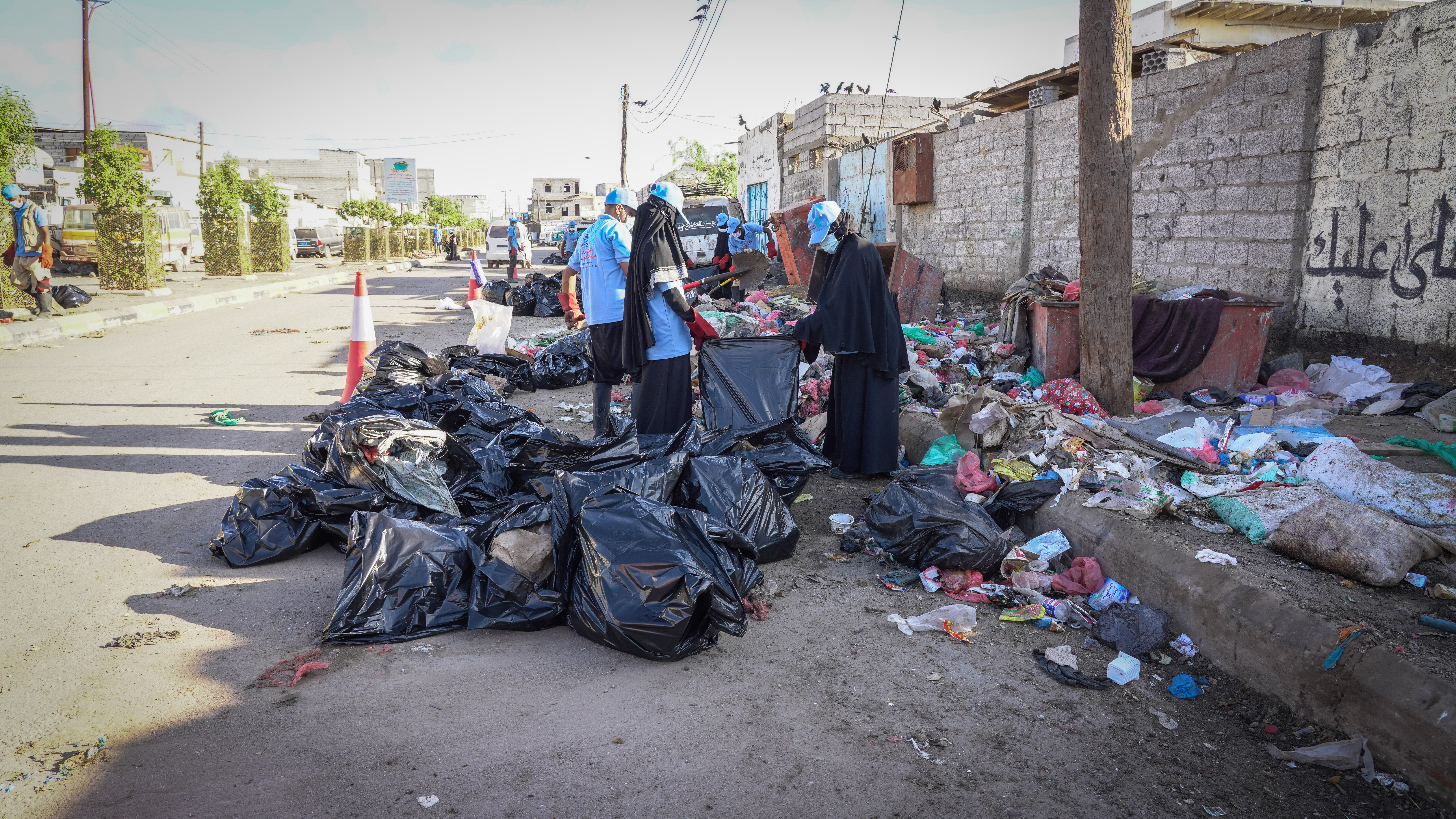In places where disasters have not caused complete destruction, most people choose to remain in their homes. Those who had to move during the acute phase usually return home as quickly as possible.
In many cases, however, the municipal solid waste services have collapsed. This results in stockpiles of waste rapidly accumulating in the streets and outside urban areas, which poses a risk to human health and the environment. The potential for adverse impacts on environmental health is especially dangerous in residential areas.
Additionally, the waste management equipment, such as collection vehicles and waste containers, can be damaged or looted during or after the disaster, thereby preventing resumption of full solid waste management systems after the disaster. Further detrimental impacts include the loss of senior and experienced waste managers, either through death, serious injuries, or displacement. This can result in inexperienced waste managers who require skills training in order to rehabilitate and manage the waste management systems.
